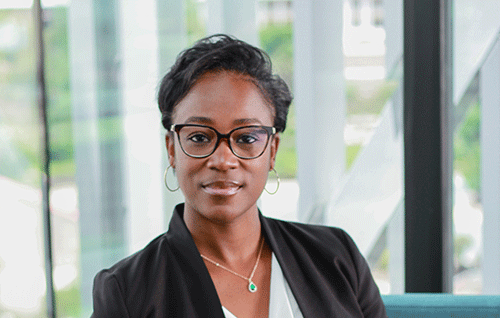MARCH is recognised as International Women’s Month. Once again, this year, the entire month has been dedicated to raising awareness about gender prejudice and efforts to drive further action towards gender equality.
The marketing campaign for the month was anchored on the theme of ‘inspiring inclusion’, urging everyone to inspire each other to recognise and embrace the
value of women inclusion in all aspects of society. As Women’s Month draws to a close, Nedbank Namibia’s Executive for Human Capital, Bianca Muller, reflects on the
theme of inclusion and emphasises the importance of encompassing its ideals
within corporate institutions.
“The banking and finance sector has long been characterised by gender disparities, with women often being under-
represented in leadership roles and encountering barriers to career
progression throughout the corporate hierarchy,” says Muller.
She noted a rising acknowledgement of the significance of gender diversity and inclusion within organisations, and how this change is driven by the realisation of its tangible benefits for businesses, economies and societies at large.
“Moreover, in modern times, there’s an increasing demand for authenticity in how companies demonstrate their commitment to gender equality. The arrival of cancel culture means people no longer tolerate insincere gestures, but instead expect and demand accountability from the companies they support,” says Muller. “At Nedbank, we are dedicated to substantiating our statements with concrete action and evidence.”
Women constitute 64% of Nedbank Namibia’s staff complement. They make up 56% of the management tier, with 70% of the demographic being black females. “We not only prioritise gender diversity in our workforce, but we also place a high value on female representation at the executive level.”
In 2020, Martha Murorua made history by becoming Nedbank Namibia’s first female managing director, demonstrating exceptional leadership skills during and after the tumultuous Covid-19 pandemic. Currently, the board of directors proudly boasts 37,5% female representation, surpassing the African average of 25%. Muller highlights the profound significance of this number, especially in the financial sector, where board appointments have historically relied on all-male networks.
“The reality is that when women hold decision-making roles, there tends to be a stronger push for gender inclusivity,” Muller says. “For example, female board members, who themselves are mothers, will be more likely to advocate for initiatives that enhance the lives of employees who are also mothers.” Muller adds that Nedbank Namibia’s commitment extends beyond fostering female inclusivity within the company.
Last year, in celebration of Women’s Month, the bank contributed to empowering women and girls in marginalised communities by donating washable sanitary pads and educational books worth N$25 000. Additionally, for the 4th consecutive year, the bank will be sponsoring the Nedbank Women in Media (WiM) conference, which aims to address the under-representation of women’s voices in mainstream media.
“We are dedicated to driving positive change in our communities and pivotal sectors of the country. But it is important to note that our efforts are greatly facilitated by the country’s progressive stance on gender equality,” Muller elaborates.
Women hold 44,2% of the seats in the Namibian National Parliament, which exceeds the global average of 26,5%, highlighting a significant level of female representation in political decision-making. The country also has the highest gender parity level in Africa – and the 8th highest globally – having closed 80,2% of the pay gap between men and women.
“However, despite the significant
progress made both by our company and the nation, there remains ample opportunity to further inspire the inclusion and empowerment of women,” Muller commented.
A study done by employment-focused social media platform LinkedIn revealed that 43% of women believe they could be more successful if they had a role model in the workplace. “For many women, knowing that they can take up space in any industry, as many of their mentors did, makes it feel more possible for them to do the same. It is a powerful catalyst for change, fostering the belief that these achievements are within reach,” says Muller.
“The journey towards gender inclusivity is complex, and addressing these issues will not happen overnight. Nevertheless, and because of national entities such as Nedbank Namibia, the stride towards gender parity continues with assured and deliberate steps.”



